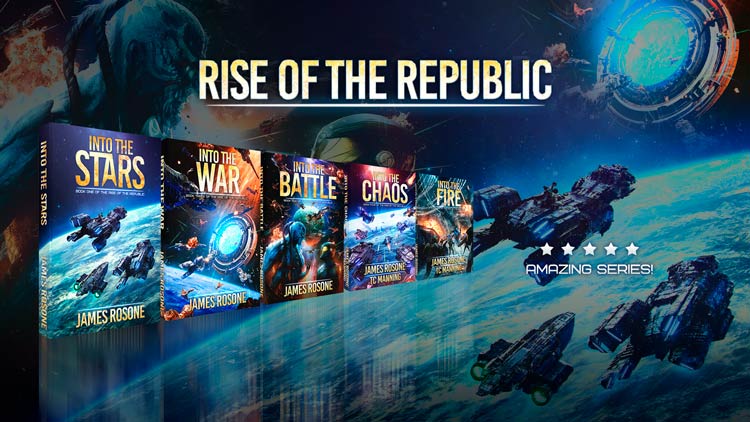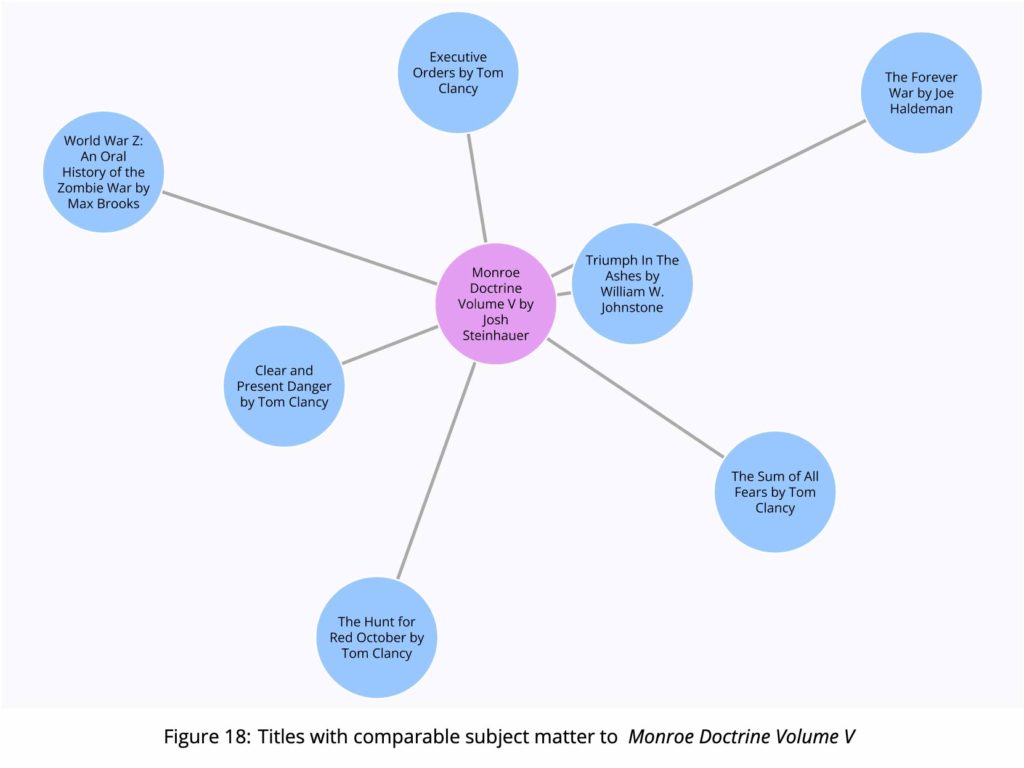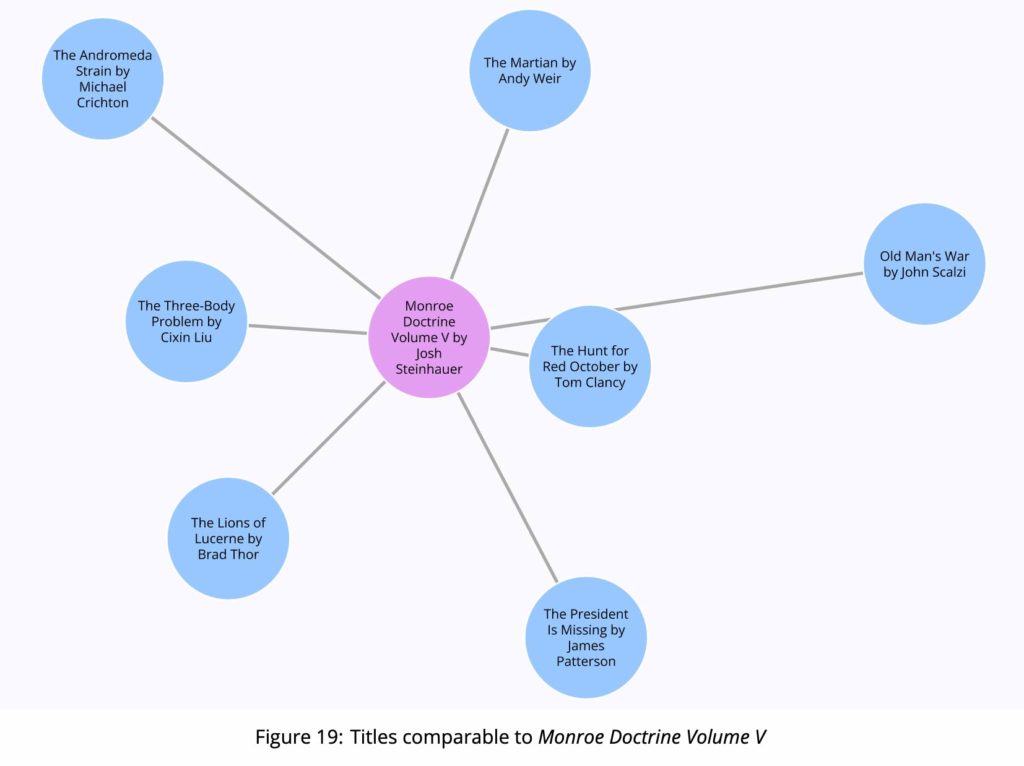
Congratulations, you finished your masterpiece.
Now comes the hard part — getting your book in front of the right readers, the ones who are most likely to purchase your book.
Traditionally speaking, most authors have a conception that the book they just crafted is most like a particular author. We’ll call them Author X for this discussion. They develop a marketing campaign and begin targeting the readers who purchase the books of Author X, believing that if these readers just see their book, they’ll give it a try and fall in love with what they created.
Historically speaking, this has not been a bad or incorrect strategy to pursue. Without access to anything better, this was the tried and tested way most authors would go about marketing their books.
What if I told you there was another way, perhaps something you didn’t know was possible?
Better yet, what if I shared a closely guarded secret — the secret sauce, if you will, to our success.
When I first started writing in the fall of 2015, the phrase I didn’t know what I didn’t know could not have been truer. I made countless mistakes along the way, and as 2016 progressed, I stumbled by chance into moderate success, earning an astounding $40,696.20 from just three books of a four-book series. Despite that early success, I could not tell you how we did it. Worse, I had no idea how to replicate it.

Like many, I developed a marketing plan around the authors I believed my book and my linguistic style most closely resembled. For the next several years, that was how I operated. Then in the fall of 2019, I was presented with what would go on to become Marlowe — Authors AI’s analytical tool. For the first time, I found a tool that could analyze my existing manuscript. Aside from providing an inordinate amount of valuable, actionable data that helped me to improve my writing, it was able to provide an unbiased linguistic and stylistic comparison of my book against the database of books contained in its growing library.
What I immediately discovered through using this tool was that my initial assumption that my books most resembled Author X was actually wrong. In fact, it couldn’t have been clearer, scientifically, that my books more closely compared to Author Y, not Author X.

In this example, we are looking at the fifth volume in the Monroe Doctrine series I co-author with Miranda Watson. This is a military-technothriller involving an advanced AI that is essentially given the ability to give orders to the generals of a nation’s military, leveraging the AI’s ability to wargame battles in advance of them being fought to ensure a highly likelihood of success. In this situation, we quickly see that our book, the Monroe Doctrine, does not resemble the works of Dale Brown, Brad Thor or even Jack Carr. Our most comparable books and authors are actually three titles written by Tom Clancy, World War Z by Max Brooks, and The Forever War by Joe Haldeman. These are great comparisons to look at from a marketing perspective, but they are still not the golden nugget we are after.
A comparison in subject or material is one thing. Linguistic style of those comps in comparison to your own … now that is the treasure you are after. That is the secret sauce.
If you are marketing your books toward Author X, but your books are most like Author Y, then you are going to struggle selling books because you are pushing a product that audience is not predisposed to enjoy.
The linguistic style comparison is going to yield the greatest results for you. Not only are you directing the ad for your book at an audience that at least likes a comparable book you have created, now you are zeroing in on the readers who favor your specific brand of prose. This leads not only to increased sales, it also leads to increased reader satisfaction and substantially more positive book reviews.
Knowledge of author comps is key
Prior to using this unsung feature on the Marlowe report, we struggled to a degree with obtaining high volumes of reviews for our books and series writ large. Then in 2020, when I began to craft the first books in both our military-technothriller series, the Monroe Doctrine, and our military-Sci-Fi series, the Rise of the Republic, I leveraged every bit of the Marlowe AI report to help us craft what I believed would go on to become our next bestsellers. Of course, I realize now that I was being a bit crazy at the time in deciding that I could write books in two genres and two series at the same time. Wow, that proved to be a challenge, but I will be the first to say it was our heavy use of the Marlowe AI report and really understanding how to use it that led to both series being primed for success.
Armed with the knowledge of which authors each series was going to be most linguistically similar to, and having a list of what other books and authors both of our series compared best against, I developed a marketing strategy to best reflect this newfound data. During the last 26 months since we released the first book in the Rise of the Republic series, we saw a massive uptick in the number of reviews — not just across the first book, but across the seven of 12 books that are currently available. In fact, Into the Stars, the first book in the series, has so far gone on to receive 3,568 reviews with the collective seven currently available books receiving an astonishing 15,117 reviews while earning $378,077.30 over a very short period of time.

Now to prove this was not some random fluke, that this could be replicated, during this time period, I had started crafting our military-technothriller series, the Monroe Doctrine. We extensively used the Marlowe report in crafting each book in this series, and I believe it shows in the volume of reviews and more importantly, the royalties this series has gone on to earn.
The first volume to this series was released in January 2021, with the sixth volume scheduled to release at the end of October 2022. The first volume in this series has received 3,745 reviews while the collective five volumes to the series has received 13,175 reviews while earning $342,175.37 in royalties over a 21-month period. These books have been out five months less than the sci-fi series, but I’ve managed to tailor our marketing for each series and help them both to take off.
In short, if you haven’t run your manuscript through Marlowe, you don’t know what you are missing. As writers, we are always striving to improve our craft, to get better at finding our tribe of readers who enjoy our works and allow us to make this a full-time career. As most writers can attest, this is a hard career to succeed in. With new tools like Authors AI Marlowe report, it doesn’t have to be as difficult or enigmatic as it once was. Technology is something we should embrace; it’s something we should use if it’ll make us better writers so we can succeed in achieving that dream of being a full-time author.
If you haven’t tried Marlowe, I’d encourage you to give it a go and find out what you’ve been missing. The Marlowe Basic Plan, which is free, will provide a 14-page PDF document with feedback on your novel’s readability score, clichés, dialogue percentage, repetitive phrases, use of explicit words, frequently used adverbs and adjectives, and possible misspellings.






